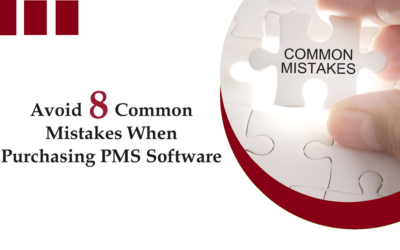
Businesses are constantly seeking ways to streamline operations, enhance productivity, and gain a competitive edge. One transformative tool that has emerged to address these needs is Enterprise Resource Planning (ERP) systems. By integrating various business processes into a centralized platform, ERP systems have revolutionized the way organizations operate. In this blog, we will delve into the profound impact of ERP systems on reshaping business dynamics.
Understanding ERP Systems
Before diving into their impact, let’s first understand what ERP systems entail. ERP systems are comprehensive software solutions designed to automate and integrate core business processes such as finance, human resources, supply chain management, manufacturing, and more. These systems provide a unified view of an organization’s data and processes, enabling better decision-making, resource optimization, and operational efficiency.
Benefits of ERP Systems
1. Enhanced Operational Efficiency
One of the most significant ways ERP systems reshape business dynamics is by enhancing operational efficiency. By consolidating disparate systems and data sources into a single, integrated platform, ERP systems eliminate redundancy, reduce manual tasks, and streamline processes. For example, instead of maintaining separate software for accounting, inventory management, and customer relationship management, an organization can leverage an ERP system to handle all these functions seamlessly. This integration leads to smoother workflows, faster response times, and ultimately, cost savings.
2. Improved Decision-Making
In today’s data-driven business environment, making informed decisions is paramount to success. ERP systems play a crucial role in facilitating decision-making by providing real-time access to accurate, consolidated data across various departments. Whether it’s financial reports, inventory levels, or sales forecasts, managers can rely on ERP-generated insights to make strategic decisions promptly. Moreover, advanced analytics tools integrated into ERP systems enable predictive modeling and trend analysis, empowering organizations to anticipate market changes and stay ahead of the competition.
3. Streamlined Collaboration
Effective collaboration is essential for driving innovation and achieving business objectives. ERP systems promote collaboration by breaking down silos between departments and enabling cross-functional communication. For instance, employees from sales, marketing, and production can access the same data and collaborate on projects seamlessly within the ERP platform. Additionally, cloud-based ERP solutions facilitate remote collaboration, allowing teams to work together regardless of their geographical locations. This enhanced collaboration fosters a culture of transparency, accountability, and teamwork within organizations.
4. Scalability and Flexibility
Businesses are constantly evolving, and their software systems need to adapt accordingly. ERP systems offer scalability and flexibility to accommodate the changing needs of organizations. Whether a company experiences rapid growth, enters new markets, or undergoes organizational restructuring, ERP systems can scale up or down as required. Moreover, modular ERP architectures allow businesses to customize their systems by adding or removing modules based on their specific requirements. This scalability and flexibility empower organizations to stay agile and responsive in a dynamic business environment.
5. Enhanced Customer Experience
In today’s hyper-competitive market, delivering exceptional customer experiences is non-negotiable. ERP systems contribute to this goal by streamlining operations and improving service delivery. For example, by integrating customer relationship management (CRM) functionality into the ERP system, organizations can manage customer interactions more effectively, personalize services, and build stronger relationships with clients. Furthermore, ERP-generated insights enable organizations to anticipate customer needs, resolve issues proactively, and deliver products and services that exceed expectations.
6. Regulatory Compliance and Risk Management
Compliance with regulatory requirements and effective risk management are critical aspects of business operations, especially in highly regulated industries such as finance and healthcare. ERP systems help organizations navigate complex regulatory landscapes by enforcing standardized processes, maintaining audit trails, and generating compliance reports. Additionally, built-in risk management tools enable organizations to identify, assess, and mitigate risks effectively. By ensuring compliance and minimizing risks, ERP systems safeguard organizations from potential legal and financial consequences.
Challenges and Considerations
While ERP systems offer numerous benefits, their implementation can be complex and challenging. Organizations must carefully plan and execute ERP projects to avoid common pitfalls such as cost overruns, timeline delays, and resistance from employees. Moreover, data security and privacy concerns are paramount when dealing with sensitive business information within ERP systems. Organizations must implement robust security measures and compliance protocols to protect their data from breaches and unauthorized access.
Conclusion
In conclusion, ERP systems have emerged as powerful tools that reshape business dynamics in the modern era. From enhancing operational efficiency and decision-making to fostering collaboration and scalability, ERP systems offer a myriad of benefits that drive organizational success. By embracing ERP technology and leveraging its capabilities, businesses can adapt to changing market dynamics, streamline processes, and deliver superior customer experiences. However, successful ERP implementation requires careful planning, ongoing support, and a commitment to organizational change. With the right strategy and execution, ERP systems can empower businesses to thrive in an increasingly competitive landscape.





0 Comments